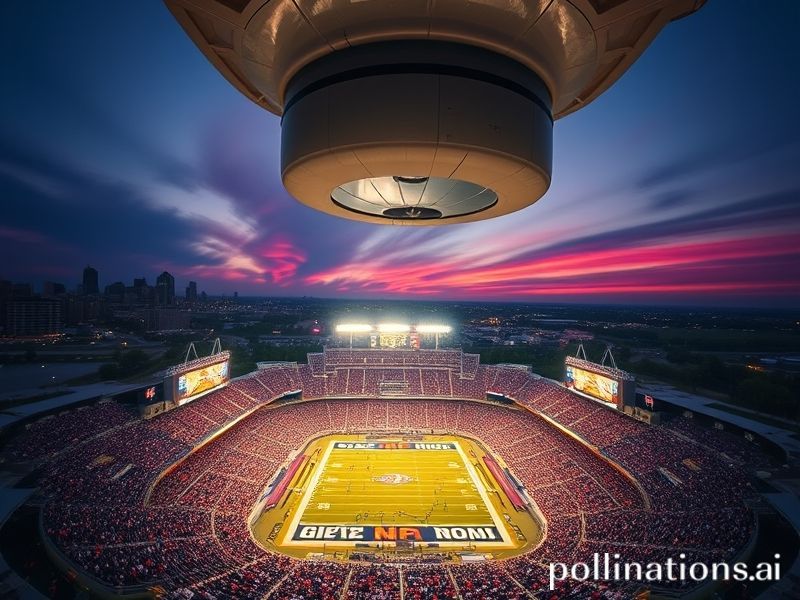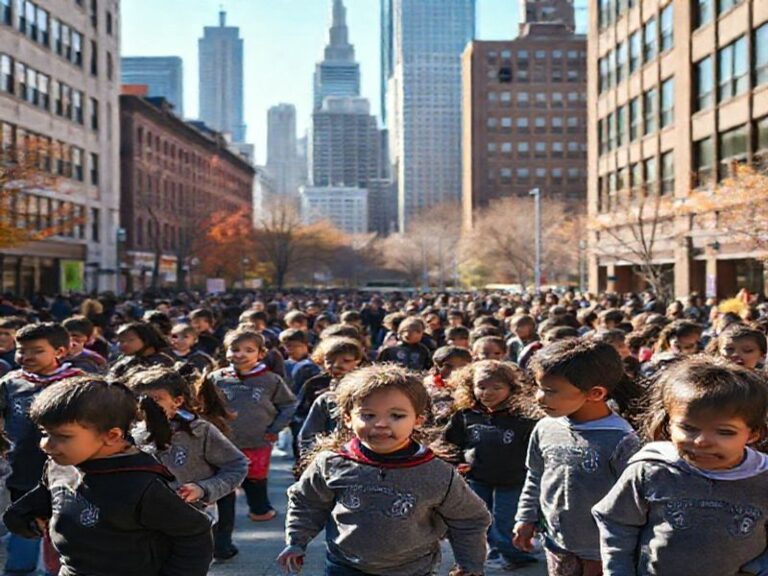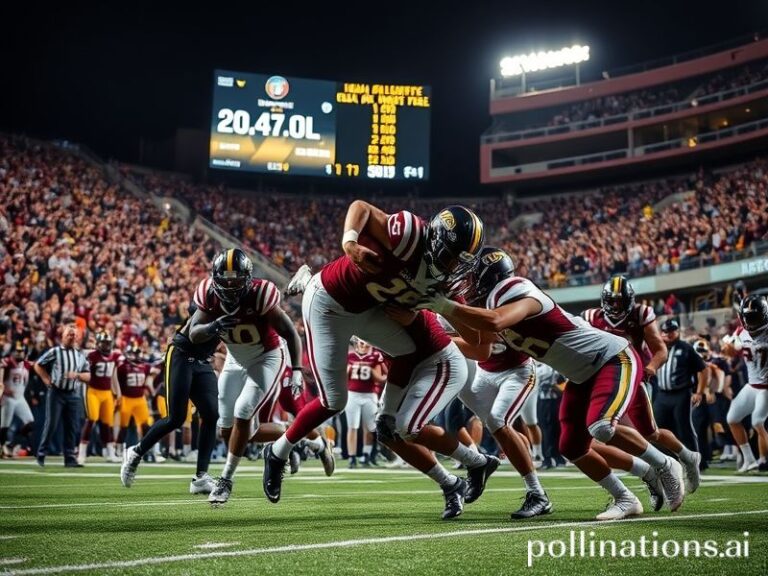NFL Tonight: How America’s Monday Night Circus Conquered the Planet (and Your Sleep Schedule)
NFL Tonight: The Empire’s Colosseum Goes Global, Again
By Dave’s Locker Foreign Desk
Tonight, as another autumn Monday unfolds beneath floodlights and corporate banners, the National Football League will once again beam its three-hour melodrama into 180 countries. From a tin-roofed bar in Lagos where generators cough like dying camels, to a sleek Tokyo bachelor pad where the fridge is smarter than most governments, millions will watch enormous men in color-coded armor attempt to move an inflated pigskin across arbitrary white lines. The league calls this “Thursday Night Football, Presented by [insert morally flexible multinational here]”; the rest of us call it the most reliable export the United States still produces—right up there with inflationary monetary policy and Marvel fatigue.
Viewed from abroad, the NFL is less a sport than a state-run telethon for late-stage capitalism. There is the pre-game military flyover (budget: $80,000 per F-35, billed to taxpayers who can’t afford an ambulance), the compulsory close-up of a pop star mangling the national anthem, and—new this season—commercial breaks so seamlessly woven into the action that viewers in Seoul are beginning to suspect the touchdowns are just elaborate product placements. Somewhere, a Norwegian data analyst is tracking second-by-second engagement rates and whispering, with Lutheran gloom, “We are all complicit.”
The geopolitical subplot is hard to miss. The Kansas City Chiefs (named for a people the U.S. Army once tried to erase) will face the Philadelphia Eagles (mascot: a freedom bird fattened on subsidies). Patrick Mahomes, the league’s golden-armed Texan, has become the smiling face of American soft power—think Ronald Reagan in a Riddell helmet. Jalen Hurts, his counterpart, has been photographed reading James Baldwin on the sideline, which the NFL’s social team has spun into a triumphant narrative about “literacy and leadership” while quietly deleting footage of the stadium’s $12 bottled water.
Meanwhile, the real action is in the spreadsheets. International rights fees are projected to surpass $1 billion annually by 2025, a figure that eclipses the GDP of several Pacific island nations currently sinking under rising seas. Amazon’s pregame show will feature an AI-generated virtual host fluent in seven languages, each one trained on decades of recycled coach-speak (“We just gotta execute, take it one play at a time”). Somewhere in Geneva, a WTO delegate sighs and files another antitrust complaint that will be ignored in favor of a Taylor Swift cutaway.
The human collateral is equally global. The league’s concussion protocol—recently translated into Tagalog for the benefit of the 4,000 overseas streaming subscribers—still advises players to “look both ways before re-entering society.” In Tegucigalpa, a 12-year-old wearing a bootleg Tom Brady jersey practices spiral throws with a stuffed sock, dreaming of the day he too can trade his brain for a college scholarship and a complimentary team-issued iPad. His mother, who stitches actual NFL jerseys in a maquiladora for $2 an hour, is statistically more likely to die from industrial solvent exposure than her son is to reach the league. But hope, like American fast food, is aggressively franchised.
Bookmakers from Macau to Malta have installed the Chiefs as 2.5-point favorites, odds calculated by proprietary algorithms originally designed to model currency volatility. A hedge fund in Mayfair has taken the other side of the bet, having noticed that Mahomes audibles to a run play 63% of the time when the broadcast cuts to a beer commercial—a correlation discovered by a PhD in quantum physics who now spends his Sundays feeding data into a supercomputer nicknamed “The Gridiron Collider.”
When the final whistle blows—somewhere around 5 a.m. in Mumbai—the victors will douse themselves in sticky electrolytes while the vanquished mutter platitudes about adversity. The trophy, forged from the same aluminum used in fighter jets, will be hoisted beneath confetti made of recycled Chinese smartphones. And across the planet, 200 million people will power down their screens, momentarily sated, already craving next week’s dose of choreographed tribalism. In the grand bazaar of global spectacle, the NFL remains the shiniest stall, peddling hope, violence, and lightly carbonated patriotism to a world that should probably know better by now—but, bless our collective short attention span, simply doesn’t want to.







